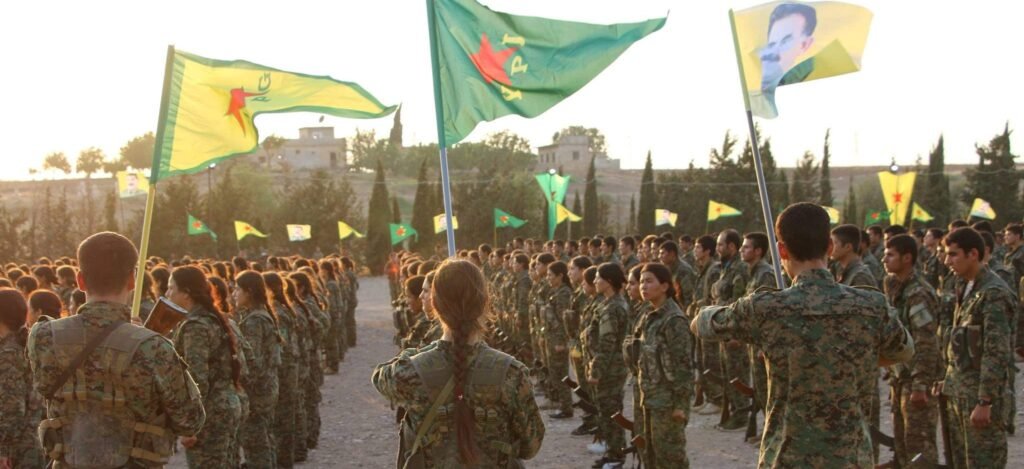In recent weeks, Turkey’s ambitions in Syria have come into sharp focus, as Turkish-backed forces spearheaded by Hayat Tahrir al-Sham (HTS) brought down the Assad regime. While this development was applauded in much of the Western media, little attention has been paid to the darker reality unfolding in northeastern Syria—the heartland of the Kurdish Autonomous Administration, known as Rojava.
Under the cover of regional chaos, Turkey has systematically expanded its offensive into Kurdish-held territories. Towns like Tel Rifaat have fallen, and Manbij—the final Kurdish bastion west of the Euphrates—succumbed to Turkish forces after days of bombardment. Turkish-backed militias, emboldened by this advance, have unleashed horrific violence: families have been massacred, and reports of brutal atrocities, including rape and mass executions, have surfaced.
This offensive is more than a military operation; it represents President Erdogan’s broader strategy of regional dominance. By propping up HTS and securing control over northern Syria, he seeks to consolidate Turkey’s influence while crushing Kurdish aspirations for autonomy.
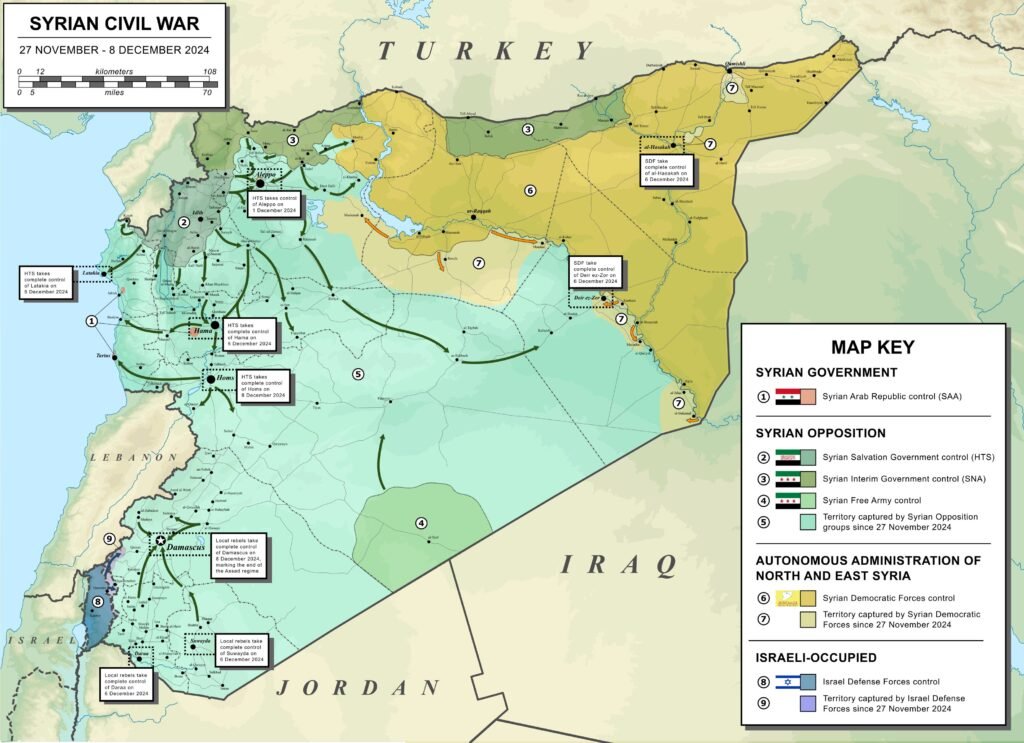
For Erdogan, the Kurdish experiment in self-governance—rooted in leftist ideals and embodied by Rojava—is a direct challenge to his nationalist vision of a ‘Greater Turkey.’ To achieve his goal, he aims to dismantle the Syrian Democratic Forces (SDF), a coalition deeply tied to the PKK, which Turkey has long viewed as a threat.
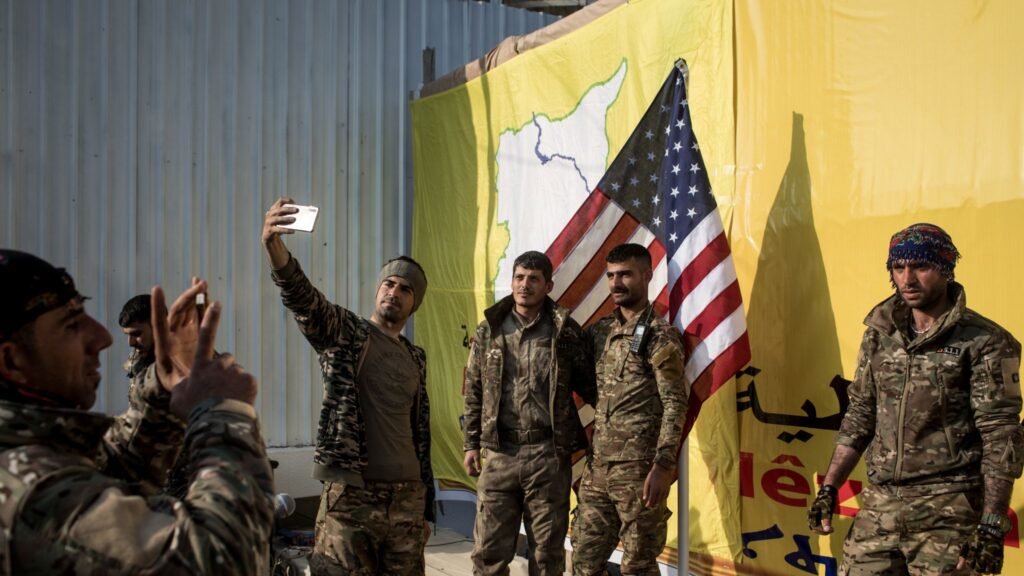
The Role of Imperialism: Allies in Name Only
The Kurdish struggle has repeatedly been shaped—and betrayed—by imperialist powers. Since 2014, when ISIS swept across Syria and Iraq, the Kurds emerged as the most effective force resisting the Islamist advance. The YPG and SDF sacrificed thousands of lives to defeat ISIS, earning global recognition for their bravery. Yet behind the scenes, their Western allies—chiefly the United States—saw them not as equals, but as pawns.
U.S. support for the Kurds was always transactional. While American weapons and funding bolstered the SDF’s fight against ISIS, this alliance came at a steep political cost. The Kurdish leadership’s reliance on U.S. backing meant accepting limits on their autonomy and abandoning broader revolutionary ambitions.
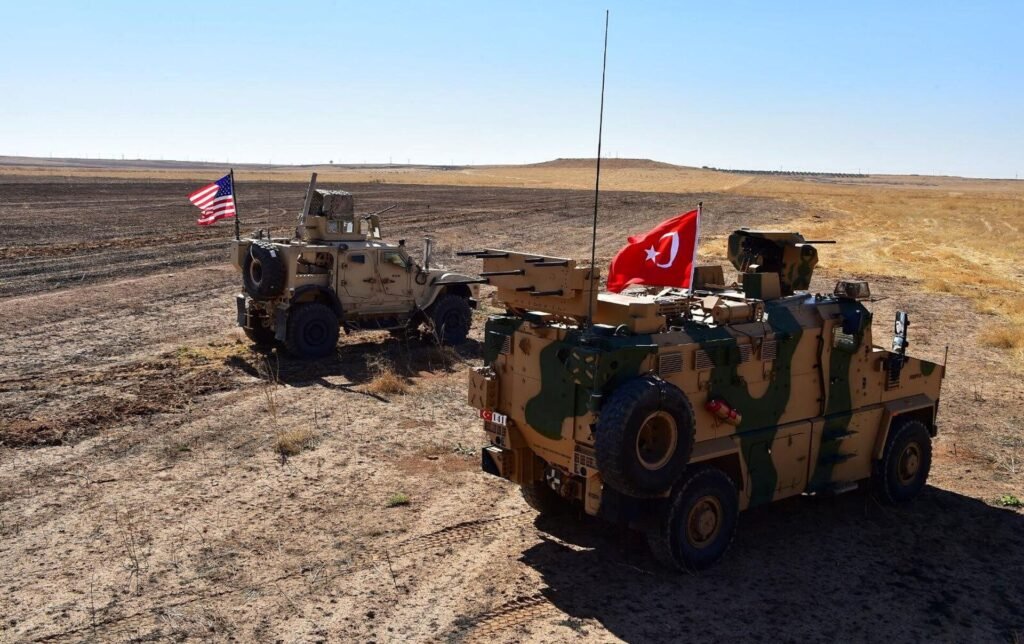
Washington used the Kurds to tip the scales of power in its favor, but it never intended to provide long-term guarantees for Kurdish independence. This Faustian bargain ultimately set the stage for the betrayals that followed. The 2018 invasion of Afrin was a turning point. When Turkey launched its offensive, the United States stood idly by, declaring Afrin “not a strategic priority.” Kurdish pleas for intervention were ignored, exposing the true nature of U.S. imperialism—a force driven by self-interest, indifferent to the struggles of oppressed peoples.
Erdogan’s Crusade Against the Kurds
President Erdogan’s hostility toward the Kurds stems from both geopolitical and domestic concerns. Within Turkey, Kurds represent a significant minority—comprising nearly 20% of the population—and their aspirations for self-determination pose a direct challenge to Erdogan’s authoritarian rule.
The HDP (Peoples’ Democratic Party), which has roots in Kurdish leftist movements, gained traction as a progressive political force, threatening Erdogan’s grip on power.
Internationally, Erdogan has embraced a cynical strategy of aligning with jihadist groups to advance Turkish interests. Whether through tacit support for ISIS or direct sponsorship of HTS, Turkey’s actions have consistently prioritized its own expansionist agenda over regional stability. Erdogan’s relentless military campaigns—from the bombardment of Kurdish cities in Turkey to the invasions of Afrin and Manbij—demonstrate his determination to erase Kurdish self-rule wherever it emerges.
Despite his rhetoric on Palestine and anti-imperialism, Erdogan is no champion of oppressed peoples. His policies serve the interests of Turkey’s capitalist class, perpetuating conflict and suffering across the region.
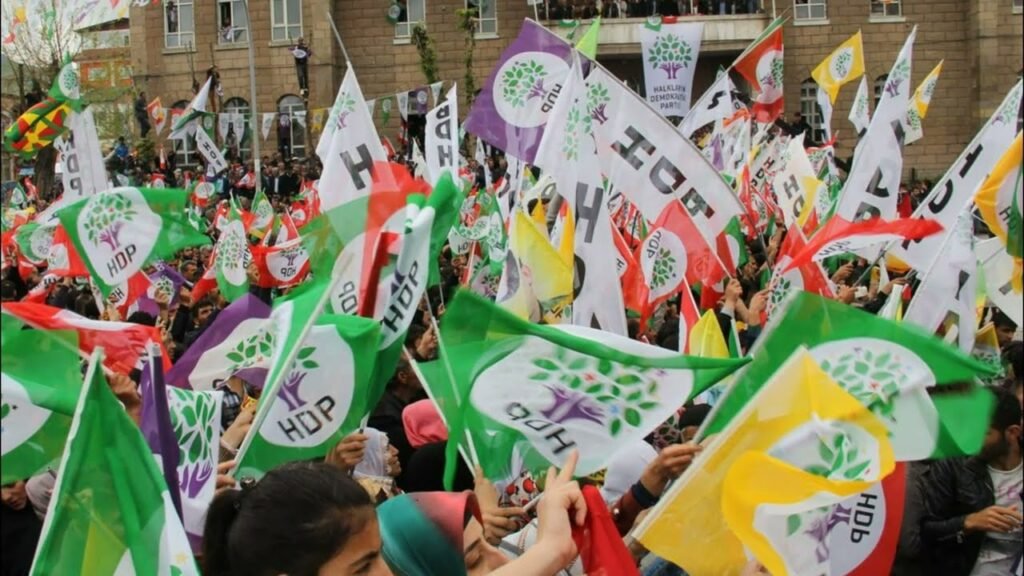
The Limits of Kurdish Strategy
Rojava’s rise in 2013 represented a powerful alternative to both jihadist reaction and Assad’s authoritarianism. Rooted in socialist and feminist principles, the Kurdish-led revolution inspired millions across Syria and beyond. However, the movement’s leadership made critical missteps that weakened its position.
By framing the struggle as a purely national fight and relying on imperialist powers for military support, the Kurdish leadership sacrificed political independence. While the U.S. provided weapons and funding, it demanded strategic concessions that isolated the Kurds from broader revolutionary forces. The failure to connect Rojava’s struggle with the class struggles of Arab, Turkish, and Iranian workers limited its potential to spread beyond Kurdish-majority areas.

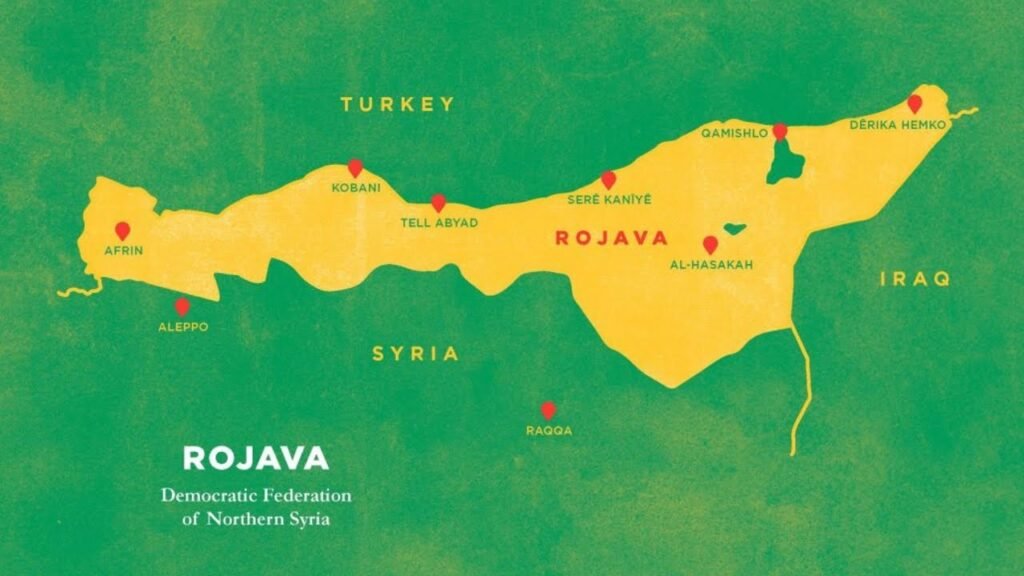
A Revolutionary Path Forward
The collapse of the Assad regime and the chaos that follows present both dangers and opportunities. Turkey’s growing influence, the resurgence of jihadist forces, and the betrayal of imperialist powers underscore the need for a new strategy. The Kurdish movement cannot achieve lasting freedom through alliances with oppressive regimes or foreign powers. Instead, it must embrace a revolutionary approach that unites the struggles of all oppressed peoples in the region.
The answer lies in building a mass movement that transcends ethnic and national divisions, linking the Kurdish struggle for self-determination with the broader fight against capitalism and imperialism. In Turkey, where economic hardship and political repression fuel growing discontent, the conditions exist for a united struggle of Kurdish and Turkish workers against Erdogan’s regime. Similarly, in Syria, the collapse of the old state creates space for revolutionary alternatives to emerge.
Communists defend the right of the Kurdish people to self-determination unequivocally. The fight for a homeland is inseparable from the fight against the capitalist and imperialist forces that have divided and oppressed the region for generations. By adopting a class-based revolutionary program and forging alliances with Arab, Turkish, and Persian workers, the Kurdish movement can become the vanguard of a regional struggle for socialism.
The betrayal of the Kurds by imperialist powers is not new, but it is a harsh reminder of the need for political independence. Turkey’s war on Rojava is a direct assault on the aspirations of oppressed peoples everywhere. Yet, even in the face of adversity, the revolutionary potential of the Kurdish struggle endures.
By breaking with imperialist alliances and embracing a socialist program, the Kurds can unite with workers and oppressed peoples across the Middle East to build a better future. A Socialist Federation of the Middle East remains the only path to genuine liberation—for Kurds, Arabs, Turks, and all those who suffer under the weight of imperialism and capitalist decay.
